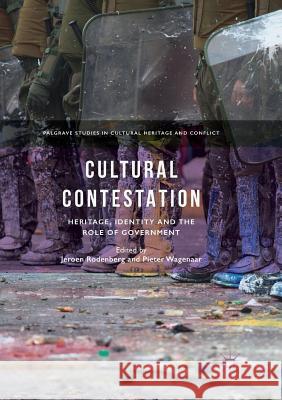Cultural Contestation: Heritage, Identity and the Role of Government » książka
topmenu
Cultural Contestation: Heritage, Identity and the Role of Government
ISBN-13: 9783030063269 / Angielski / Miękka / 2018 / 342 str.
Kategorie BISAC:
Wydawca:
Palgrave MacMillan
Seria wydawnicza:
Język:
Angielski
ISBN-13:
9783030063269
Rok wydania:
2018
Dostępne języki:
Numer serii:
000793507
Ilość stron:
342
Waga:
0.43 kg
Wymiary:
21.01 x 14.81 x 1.91
Oprawa:
Miękka
Dodatkowe informacje:
Wydanie ilustrowane











